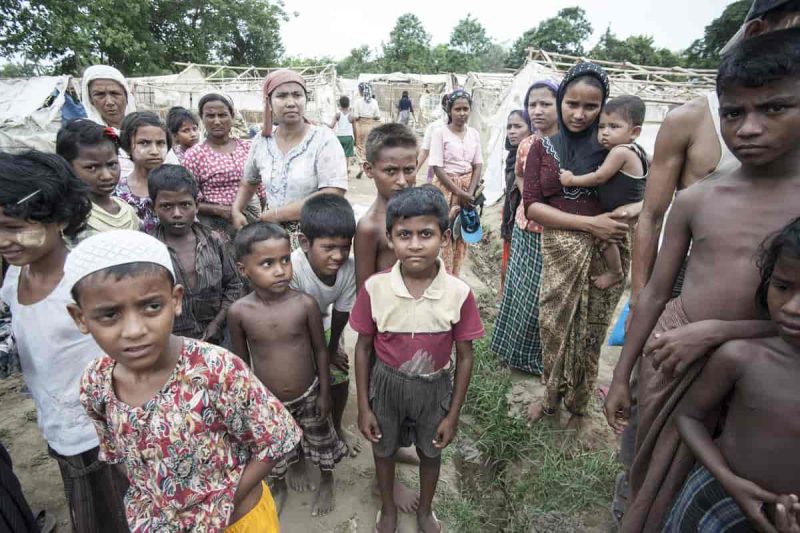As the recent Association of Southeast Asian Nations (A.S.E.A.N.) summit ended earlier this month, leaders left Phnom Penh having failed to hold the Tatmadaw to account for its atrocities in Myanmar. In doing so, A.S.E.A.N. has failed a crucial leadership test that will lead to more human suffering.
This comes as the military junta continues to fight an armed resistance supported by a large popular non-violence movement, in response to the illegal coup which overthrew the civilian government (led by Aung San Suu Kyi) in February 2021.
The toll of this conflict has been acute. The Special Rapporteur on the Situation of Human Rights in Myanmar has reported that 1.3 million people have been displaced, with the military destroying more than 28,000 homes and burning entire villages.
The Armed Conflict Location and Event Data Project estimates that almost 28,000 people may have died from political violence since the coup. 12,000 people have been detained as political prisoners, many of whom have since been tortured and killed. In July, international condemnation rose after it was reported that the junta had executed 4 political prisoners.
The conflict has recently escalated. Government forces bombed and killed 80 people in Kachin State in the worst air attack since the junta seized power in early 2021. The unlucky 80 were some out of the hundreds who had met to celebrate the founding of the Kachin Independence Organization.
In 2021, A.S.E.A.N. members called for the “immediate cessation of violence” and agreed to a ‘Five-Point Consensus’ calling for dialogue between parties within Myanmar. This agreement was widely supported by the international community, including the United States, China, and the United Nations, but the Tatmadaw have responded to the call for peace with further violence and restrictions on human rights.
A.S.E.A.N., now faced with an escalating situation, appears hamstrung.
Tatmadaw leader Min Aung Hlaing was banned from attending the summit, but the response from A.S.E.A.N. has otherwise been underwhelming. Indonesian President Joko Widodo proposed broadening the ban on Tatmadaw representatives attending A.S.E.A.N. events. A new 15-point implementation plan was also proposed, with A.S.E.A.N. leaders calling for “an implementation plan that outlines concrete, practical and measurable indicators.” However, none of these initiatives were acted upon. Despite the consensus’s lack of enforceability – the agreement has no red lines for sanctions and no deadlines – A.S.E.A.N. leaders immediately fell back on the flawed consensus, demanding that the junta implement a peace plan and cease hostilities.
The junta has not made any attempt at dialogue with opposition groups.
The tragedy is that A.S.E.A.N. has significant leverage over Myanmar, due to it being a large source of economic investment. Min Aung Hlaing and the junta fear sanctions from the bloc far more than they do from the rest of the international community. Avoiding the issue does nothing to prevent further violence, but there are steps A.S.E.A.N. can take to play a more decisive role in ending the conflict.
First, A.S.E.A.N. needs to match well-intentioned statements with well-defined actions. This can be achieved by setting clear lines that the Tatmadaw cannot cross, such as prohibiting any further attacks on civilians or executions of political prisoners. Strict timelines for negotiations between the junta and opposition groups should also be set. Failure by the Tatmadaw to meet these conditions should result in severe economic sanctions.
Admittedly, this would require consensus from all A.S.E.A.N. members – including Cambodia, which is sympathetic to the regime in Naypyidaw. However, A.S.E.A.N. has historically prided itself on its solidarity and shared decision making, which are urgently required to address the situation in Myanmar.
Second, A.S.E.A.N. should not presume that the Tatmadaw is the long-term government of Myanmar. If the junta will not take steps to cease hostilities, the bloc can open dialogue with the exiled National Unity Government and other opposition groups. Considering that Tatmadaw representatives are already banned from A.S.E.A.N. meetings, speaking with other candidates for authority in the region presents the next logical step to increase pressure on the junta where legitimacy is concerned.
Additionally, A.S.E.A.N. members should publicly announce that they will not accept the results of the elections the Tatmadaw have planned for next year. The proposed elections will not be free or fair and will do nothing to address the conflict. Refusing to accept a thinly veiled attempt to legitimize the junta’s illegal coup will send a clear message that legitimacy will come when the violence ends.
Third, the international community also has an important role to play. Countries must fund humanitarian assistance and find effective methods of distributing much-needed aid to people throughout Myanmar. The United Nations also needs to pressure the Tatmadaw into allowing human rights monitors into the country to ensure that any war crimes and human rights abuses are documented. This can be achieved by tying these demands to economic sanctions.
Myanmar has suffered through decades of state violence and repression by a powerful military that has refused to relinquish power, and it is clear the Tatmadaw have no interest in ending the conflict. Therefore, as the preeminent political and economic bloc in the region, A.S.E.A.N. is obligated to pressure the junta to cease its illegal actions. The lives of innocent people and the future of Myanmar depend on it.


